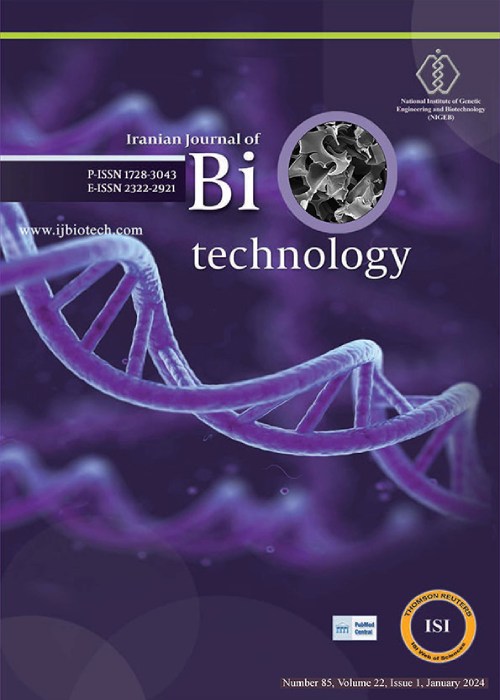Adipose-Derived Mesenchymal Stem Cells Differentiation Toward Cardiomyocyte-Like Cells on the PCL/PANI Nanofibrous Scaffold: An Experimental Study
Author(s):
Article Type:
Research/Original Article (دارای رتبه معتبر)
Abstract:
Background
Owing to the fact that the heart tissue is not able to repair itself. Biomaterial-based scaffolds are important cues in tissue engineering (TE) applications. Recent advances in TE have led to the development of suitable scaffold architecture for various tissue defects.Objective
Given the importance of cellular therapy, it was the aim of the present study to differentiate cardio myocyte cells from human adipose-derived mesenchymal stem cells (Ad-MSCs) using suitable induction reagents (namely, 5-azacytidine and transforming growth factor beta (TGF-β)) on poly-caprolactone (PCL)/Poly aniline (PANI) Nano fibrous scaffolds prepared by electrospinning.Materials and Methods
For this purpose, the adipose-derived mesenchymal stem cells (Ad-MSCs) were initially isolated and characterized before cultivation on the PCL/PANI Nano fibrous scaffold to be treated for 21 days with 5-azacytidine either singly or in combination with TGF-β in medium. The scaffold’s morphological and cell attachment properties were investigated using electron microscopy (SEM). Finally, the cardio myocyte differentiation of Ad-MSCs on the scaffold was studied using both quantitative Real-time PCR (qPCR) and flow-cytometry while the expression rates of the cardio myocytes’ specific genes (Gata4, NKX2.5, MYH-7, and Troponin I) were also determined.Results
The results of Ad-MSCs culture, MTT assay, and SEM indicated that the cells had well proliferated on the PCL/PANI scaffolds, showing the biocompatibility of the nanofibers for cellular growth and adhesion. After 21 days of induced cardio myocyte differentiation by both agents, Real-time PCR revealed increases in the expressions of Gata4, Troponin I, MYH-7, and NKX2.5 genes in the cells cultured on the PCL/PANI scaffolds while the flow-cytometry test approved the expression of troponin I.Conclusion
The data obtained showed that the PCL/PANI Nano fibrous scaffolds were able to promote and support mesenchymal stem cell transformation to cardio myocyte cells. Generally speaking, the results of the study might be exploited in future in vitro and in vivo experimental model studies of cardio myocyte differentiation using co-polymer scaffolds.Keywords:
Ad-MSCs , Cardio myocytes , PCL , PANI scaffolds , TGF-β1 , 5-Azacytidine
Language:
English
Published:
Iranian Journal of Biotechnology, Volume:20 Issue: 4, Autumn 2022
Pages:
13 to 25
magiran.com/p2489270
دانلود و مطالعه متن این مقاله با یکی از روشهای زیر امکان پذیر است:
اشتراک شخصی
با عضویت و پرداخت آنلاین حق اشتراک یکساله به مبلغ 1,390,000ريال میتوانید 70 عنوان مطلب دانلود کنید!
اشتراک سازمانی
به کتابخانه دانشگاه یا محل کار خود پیشنهاد کنید تا اشتراک سازمانی این پایگاه را برای دسترسی نامحدود همه کاربران به متن مطالب تهیه نمایند!
توجه!
- حق عضویت دریافتی صرف حمایت از نشریات عضو و نگهداری، تکمیل و توسعه مگیران میشود.
- پرداخت حق اشتراک و دانلود مقالات اجازه بازنشر آن در سایر رسانههای چاپی و دیجیتال را به کاربر نمیدهد.
In order to view content subscription is required
Personal subscription
Subscribe magiran.com for 70 € euros via PayPal and download 70 articles during a year.
Organization subscription
Please contact us to subscribe your university or library for unlimited access!


